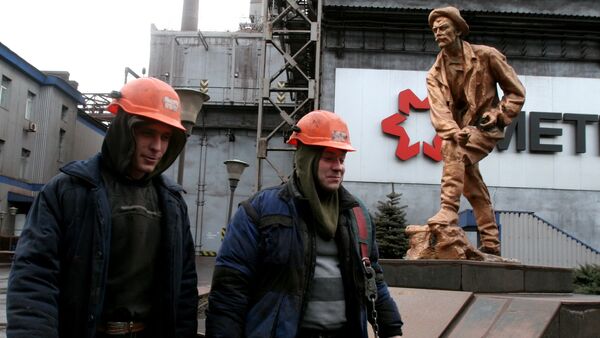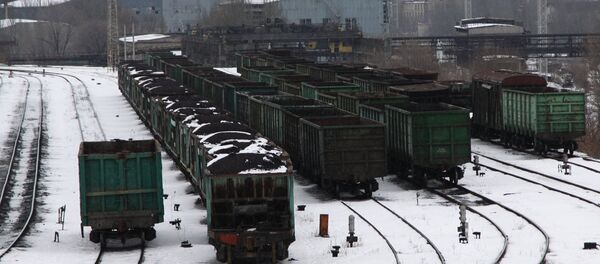MOSCOW (Sputnik) — The nationalization of businesses in Donbass is not a "grab," the regions are in a difficult situation and people need to survive somehow, Kremlin spokesman Dmitry Peskov said Wednesday.
"I do not think that the word 'grab' is applicable here… In principle, we are witnessing the fact that the regions left behind by the government are falling into an even more difficult situation, being in complete blockade by extremist elements. So, of course, to some extent, one can understand actions taken by the leadership of those regions which, once again, were rejected by their state. We are talking about the lives of several million people, so, of course, people need to survive," Peskov told reporters.
He added that those businesses had nothing to do with Russia and hence he could not comment on if it was possible to open Russian markets for them.
The Donetsk People's Republic (DPR) and the Lugansk People's Republic (LPR) decided to impose receivership regime on Ukrainian enterprises in the area in response to the transport blockade.
The blockade of railway tracks between the republics and Ukraine began in late January by former participants of military operations in Donbass. It has led to disruptions in deliveries of anthracite coal to Kiev-controlled territories.
In February 2015, Kiev forces and Donbass independence supporters signed a peace agreement in the Belarusian capital of Minsk. The deal stipulates a full ceasefire, weapons withdrawal from the line of contact in Donbass, as well as constitutional reforms that would give a special status to the Donetsk and Lugansk People's Republics. Despite the agreement, the ceasefire regime is regularly violated, with both sides accusing each other of multiple breaches, undermining the terms of the accord.





